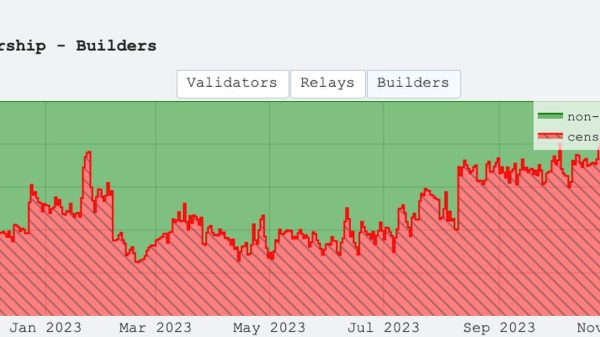Key Takeaways
- Coinbase Global Inc. faces lawsuit by SEC for violating securities laws.
- U.S. district judge allows the lawsuit to proceed.
- SEC alleges Coinbase operates as an exchange, broker, and clearing agency.
- Case moves to discovery phase ahead of trial.
Round 1 to SEC
Coinbase Global Inc. (COIN) suffered a setback as a judge denied the company’s motion to dismiss a lawsuit filed by the U.S. Securities and Exchange Commission (SEC) for violating securities laws. The company’s stock dropped as much as 4.8% on Wednesday but eventually gained some lost ground.
U.S. District Judge Katherine Polk Failla’s decision will allow the lawsuit to go forward, finding that the SEC has “sufficiently pleaded” that Coinbase operates as an exchange, broker, and clearing agency under federal securities laws, and through its staking program engages in the unregistered offer and sale of securities.
“We were prepared for this, and we look forward to uncovering more about the SEC’s internal views and discussions on crypto regulation,” said Coinbase Chief Legal Officer Paul Grewal. “Early motions like ours against a government agency are almost always denied. But clarity is the ultimate goal and today’s decision continues us on that path.”
The regulator sued Coinbase in June, alleging that the company violated securities laws by operating as an unregistered exchange, broker-dealer, and clearing agency. Coinbase filed a motion to dismiss in August. The case now moves to discovery ahead of a trial.
Order Not All Bad For Coinbase
But it wasn’t all bad for Coinbase, either. The court did grant the crypto exchange’s motion to dismiss with respect to the SEC’s claims that the company acts as an unregistered broker by making its wallet application available to customers.
“We also appreciate the court’s understanding that technology innovations like Coinbase Wallet do not and cannot implicate U.S. securities laws,” Grewal wrote.
Crypto lawyer Mike Selig said it was a “significant setback for SEC w/ Judge Failla granting Coinbase’s motion to dismiss SEC’s claim that Coinbase acted as a broker by offering non-custodial digital wallet software. SEC aimed to discourage builders from developing peer-to-peer software. Didn’t work.”
It’s the latest in an ongoing spat between the SEC and the crypto industry that seeks to mainstream access to cryptocurrencies. Earlier this year, the SEC approved the operation of spot bitcoin ETFs, leading to billions of dollars in inflows and driving the price of the biggest cryptocurrency by market capitalization to all-time highs.
The SEC is analyzing proposals for spot ether ETFs, although there is doubt that it will receive a positive response given that ether is staked—a process in which cryptocurrency holders lock up their funds as collateral to support the operations of a blockchain network in exchange for rewards in the form of additional cryptocurrency.


































